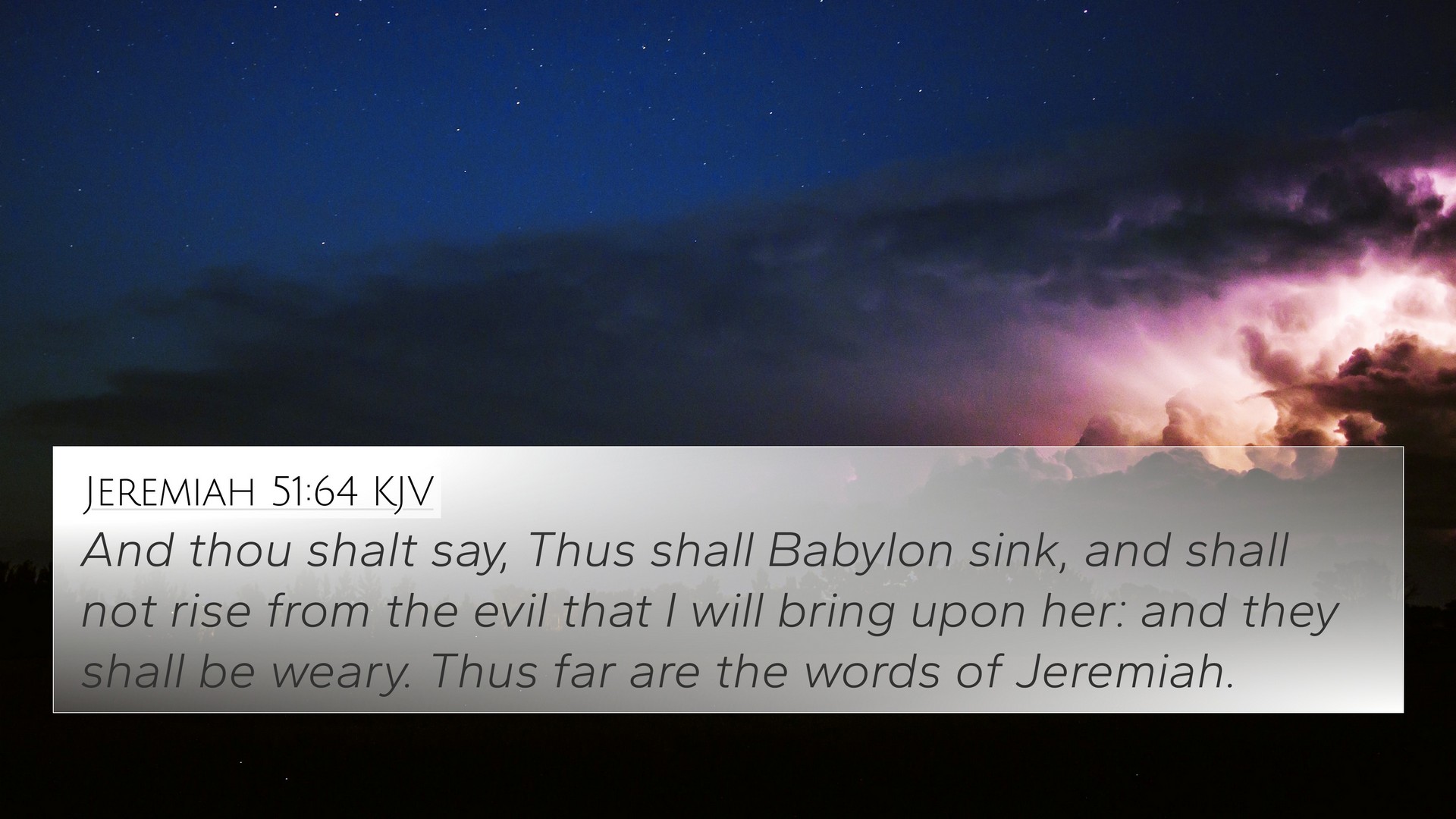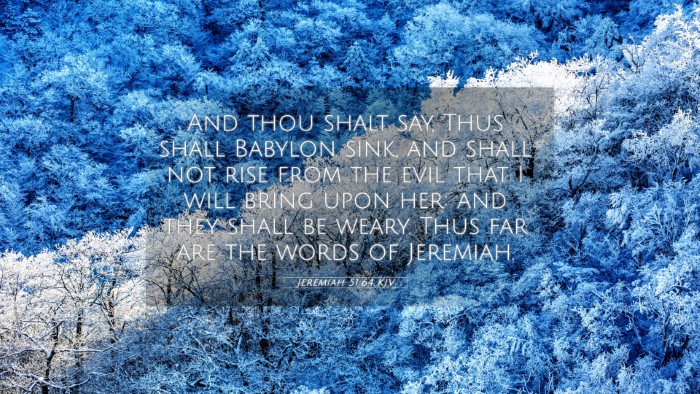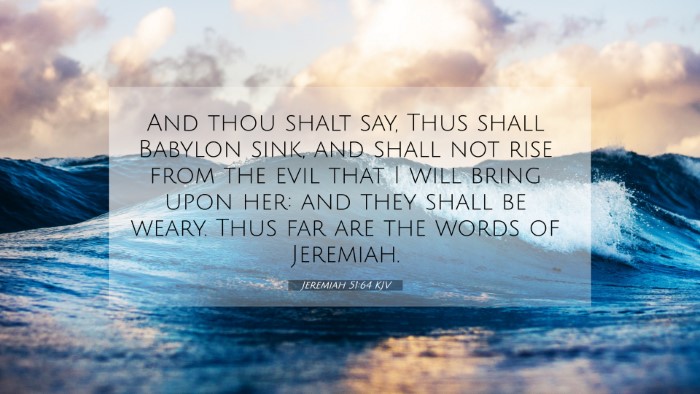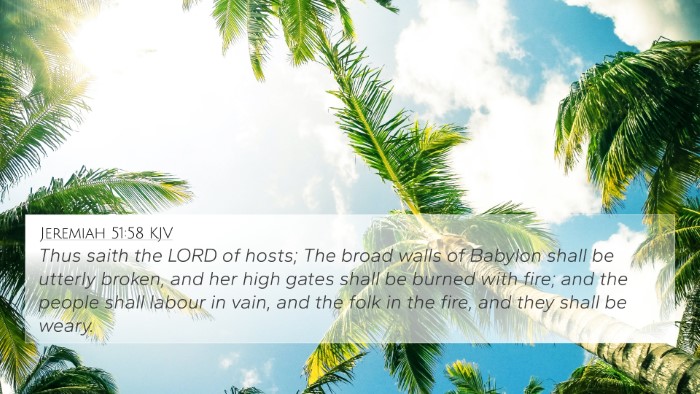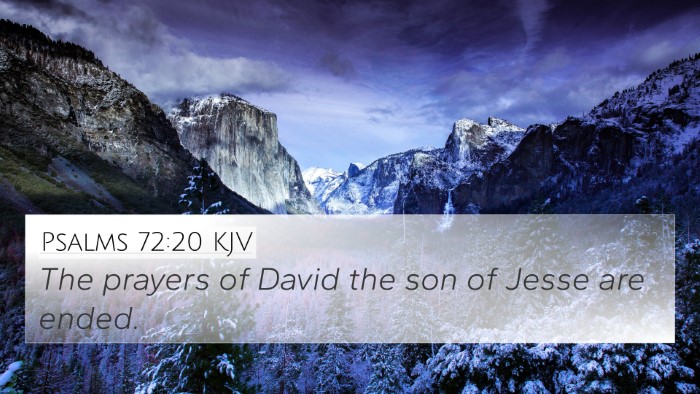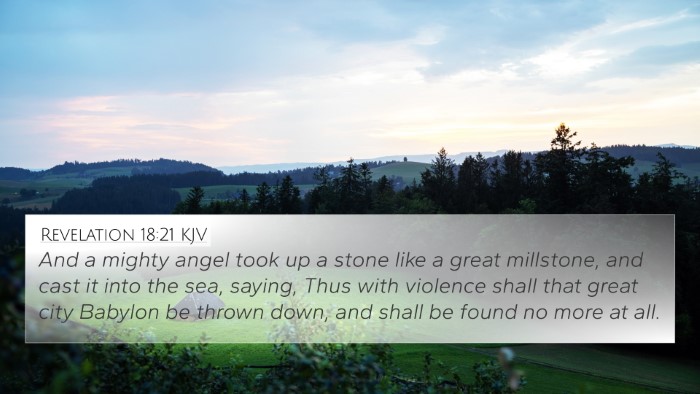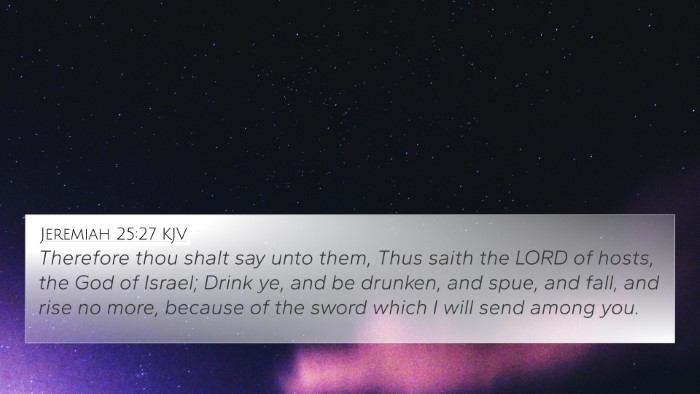Jeremiah 51:64 - Understanding the Verse
Bible Verse: Jeremiah 51:64 - "And say, Thus shall Babylon sink, and shall not rise from the evil that I will bring upon her: and they shall be weary. Thus far are the words of Jeremiah."
Overview: This verse concludes the prophecy against Babylon, symbolizing the total destruction and incapacitation of a once-great empire. The statement underscores the finality of God's judgment, offering a sobering reminder of the fate that awaits those who oppose Him.
Verse Meaning and Analysis
According to Matthew Henry, this passage signifies an irrevocable judgment on Babylon, signifying the city's complete destruction and the futility of its attempts to rise again. The phrase "shall not rise" indicates that God's decree is final, reflecting His sovereignty over nations and history.
Albert Barnes emphasizes that this prophecy serves as both a warning and a reassurance to the Israelites. For those who suffered under Babylonian captivity, it reassures them of the restoration and justice that God's judgment brings. Furthermore, it illustrates the theme of divine retribution that runs throughout the Scriptures, linking to various Biblical texts that highlight God’s justice.
Adam Clarke adds that the weariness mentioned symbolizes the efforts and struggles of Babylon to restore itself, which will be in vain. This idea of weariness can be cross-referenced with other scriptures where nations experience futility in their pride and rebellion against God.
Cross-References for Jeremiah 51:64
- Isaiah 47:1-3: A prophetic proclamation concerning the fall of Babylon.
- Revelation 18:21: The New Testament reminder of Babylon's ultimate downfall.
- Psalms 137:8-9: An expression of lament over the destruction of Babylon.
- Jeremiah 25:12: Confirmation of God's judgment against Babylon.
- Zechariah 2:7: A call for God's people to escape from Babylon.
- Jeremiah 50:13: A further depiction of Babylon’s destruction.
- Ezekiel 26:19-21: The prophecy of Tyre's similar fate mirrors Babylon’s destiny.
- Daniel 5:30-31: The account of Babylon's fall during the reign of Belshazzar.
- Isaiah 13:19-22: Prophecy of Babylon's destruction that supports Jeremiah's declaration.
- Micah 1:6: The metaphor of destruction applicable to cities in rebellion against God.
Thematic Connections in Scripture
The theme of divine retribution as highlighted in Jeremiah 51:64 can be seen as a comparative analysis across various scriptures. The interconnectedness of these themes across different books suggests a vivid dialogue within the Biblical narrative regarding God's judgment and sovereignty.
Tools for Cross-Referencing
For those interested in deepening their study of Jeremiah 51:64 and its related themes, consider the following tools:
- Bible Concordance: A reference tool to locate terms and themes across scripture.
- Bible Cross-Reference Guide: A guide to assist in discovering interrelated verses.
- Cross-Reference Bible Study: A methodology to delve into parallels in scripture.
- Bible Reference Resources: Compilations of commentaries and study aids for in-depth exploration.
- Comprehensive Bible Cross-Reference Materials: Collections that provide extensive cross-referencing for individual studies.
How to Use Bible Cross-References
Utilizing cross-references involves identifying related themes and ideas that illuminate the text. Identifying connections between Old and New Testaments can enrich one's understanding of God's plan and character as revealed throughout scripture.
Conclusion
Jeremiah 51:64 serves as a profound reminder of the consequences of prideful rebellion against God. The interconnectedness of this verse with others throughout scripture offers a rich tapestry of God's narrative on judgment and grace. As one engages in Bible verse cross-referencing, they will uncover deeper meanings and insights into God’s Word.
